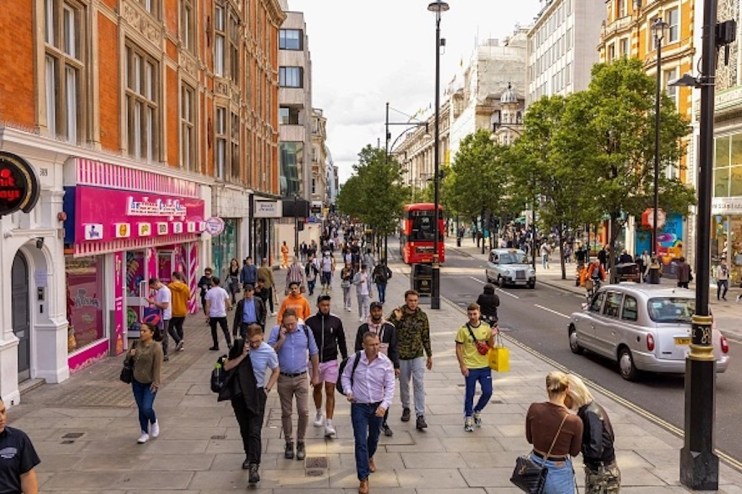Oxford Street on cusp of something really ‘special’, New West End chief says

Oxford Street is on the cusp of something “really special” and “exciting”, the chief of the New West End company has said, as store development and a boost in international tourism signals a return to better times for London’s most iconic shopping district.
Dee Corsi, who oversees operations for the retail strip which spans from Marble Arch to Tottenham Court, told City A.M. the West End is “changing” and the stores which were not wiped out during the pandemic are investing to create unique experiences to entice customers back to the high street.
“[On Oxford Street] it’s not just traditional retail, but it’s things like the Twist Illusion Museum. And the stores that are here are investing. So Primark has now got a vintage range. We’re trying to do different things so that their flagships remain the flagships and they remain very special,” she explained.
It comes as the reputation of Oxford Street has been damaged over the past few years amid store closures of once seemingly indestructible brands like Topshop, an invasion of illicit American Candy sites and a rise in hybrid working damaging footfall.
However, Corsi said the shopping district is on track to make £10bn by 2025, with the return of international tourists driving revenue.
“Average transaction value (ATV) is really strong at the moment. So for the month of March, we are around six per cent higher in terms of sales than we were in 2019, and driving that is international,” she said.
While footfall remains around 20 to 30 per cent below pre-pandemic levels, Corsi noted this was outperformed by the rebound in sales.
“The footfall that is coming is spending and that is a really important point to note,” she said.
Moreover, as figures from the ONS revealed that four out of ten Londoners now participate in hybrid working, Corsi said a lack of office workers doing some lunch time shopping has also impacted footfall.
“So during the week, footfall is strong Tuesday, Wednesday, Thursday but Mondays and Fridays can be a little bit more challenging. However, the weekends are back, Saturdays back and Sundays are the second busiest shopping day underlying for the number of hours of trade,” she said.
To capitalise on Sunday spending, Corsi and the Knightsbridge Partnership have previously urged the Chancellor to relax Sunday trading restrictions to rake in an estimated £350m a year.
“If you look at a growth measure that doesn’t cost the government anything, you would like to think that that is something that they will consider very seriously,” she said.
“We’re in the middle of a cost of living crisis. So to be able to potentially offer people two more hours on a Sunday to get that pay, you would hope would be something very positive.”
Removing the trading restrictions, which only allows shops to trade between 10am and 6pm on a Sunday, would allow London to be “globally competitive”, she added.
“Dubai is twenty four seven and if you’re out in Europe, you can shop at any time of the day. So, we’re behind the times. We should absolutely be pushing this through.”